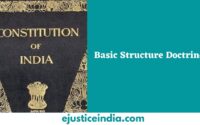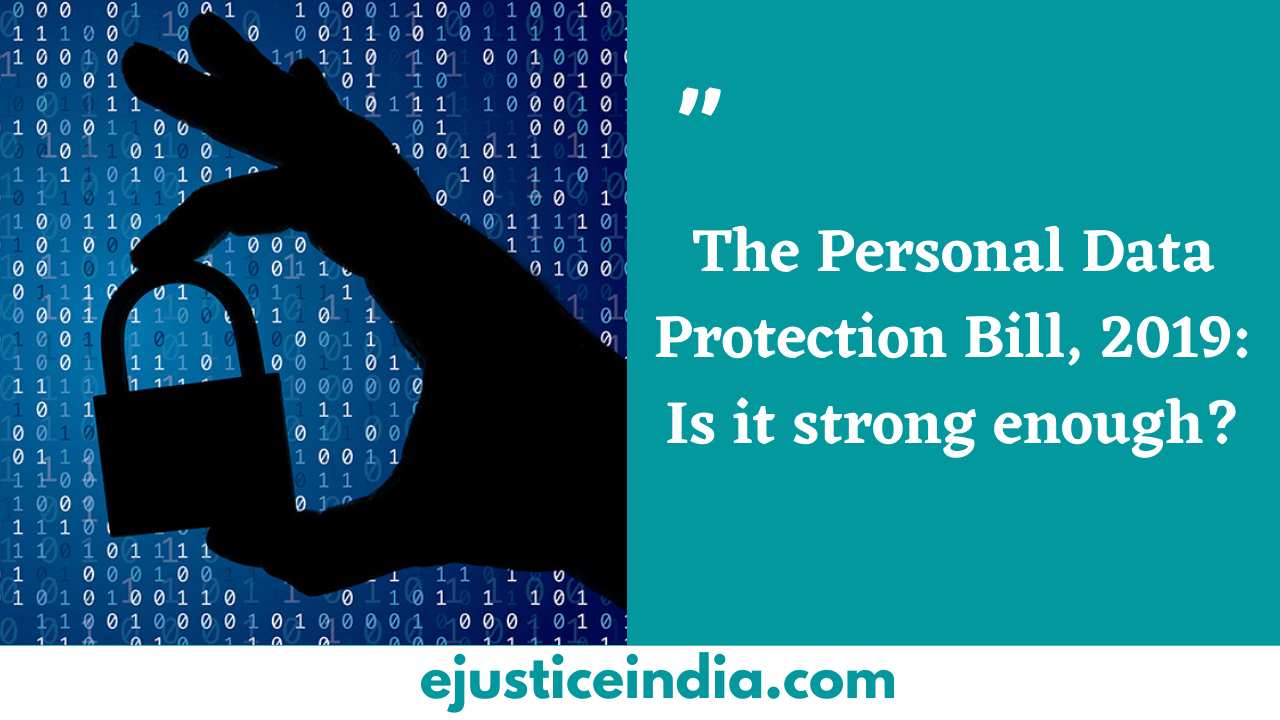MARITAL RAPE
Author : Yash Y. Naik
- DEFINITION.
- The exception (2) of section 375 of The Indian Penal Code,1860.
It clearly says that Sexual intercourse or sexual acts by a man with his own wife, the wife not being under fifteen years of age, is not rape
Explanation: Sexual intercourse within the couple’s i.e husband and wife, where wife should not be under the age of 15 does not constitute a rape.
- ESSENTIALS OF RAPE
- Section 375 of The Indian Penal Code,1860. State that’s,
A man is said to commit “rape” if he—
(a) penetrates his penis, to any extent, into the vagina, mouth, urethra or anus of a woman or makes her to do so with him or any other person; or
(b) inserts, to any extent, any object or a part of the body, not being the penis, into the vagina, the urethra or anus of a woman or makes her to do so with him or any other person; or
(c) manipulates any part of the body of a woman so as to cause penetration into the vagina, urethra, anus or any part of body of such woman or makes her to do so with him or any other person; or
(d) applies his mouth to the vagina, anus, urethra of a woman or makes her to do so with him or any other person,
under the circumstances falling under any of the following seven descriptions:—First.—Against her will.
Secondly.—Without her consent.
Thirdly.—With her consent, when her consent has been obtained by putting her or any person in whom she is interested, in fear of death or of hurt.
Fourthly.—With her consent, when the man knows that he is not her husband and that her consent is given because she believes that he is another man to whom she is or believes herself to be lawfully married.
Fifthly.—With her consent when, at the time of giving such consent, by reason of unsoundness of mind or intoxication or the administration by him personally or through another of any stupefying or unwholesome substance, she is unable to understand the nature and consequences of that to which she gives consent.
Sixthly.—With or without her consent, when she is under eighteen years of age.
Seventhly.—When she is unable to communicate consent.
- ANALYSIS.
By considering the above detailed section 375 and its exception, we frame marital rape as a sexual intercourse within the married couples where by the women is of the age 15 or above, then it shall not be considered as a rape even if she refute or deny to give her consent or if the act is done against her will.
Thus India is named within the 36 countries for not considering to criminalise the offence of marital rape.
- History.
- Doctrine of Couverture.
The principle of coverture was described in William Blackstone’s Commentaries on the Laws ofEngland in the late 18th century.
Principle of doctrine: upon marriage, a woman’s legal rights and obligations were subsumed by her husband, in accordance with the wife’s legal status of femecovert. An unmarried woman, a femesole, had the right to own property and make contracts in her own name.
Thus this doctrine recognise the society as patriarchal one rather then giving equal opportunity to get themselves recognise separately in the eyes of law.
Thus the drafts of IPC were considered by referring to the old generation and certainly it’s the real time now to get this section amended by referring it to new generation, where we see woman having equal rights as the man.
- Violation of Article 14, Article 19 and Article 21 of The Constitution of India,1949.
- Shri Bodhisattwa Gautam v Miss Subhra Chakraborty. Citation: 1996 AIR 922
The Supreme Court made a remarkable observation that; Rape is not only a crime against the woman (victim), it is a crime against the entire society. It destroys the entire psychology of a woman and pushed her into deep emotional crises. It is only by her sheer will power that she rehabilitates herself in the society which, on coming to know of the rape, looks down upon her in derision and contempt.
Rape is therefore, the most hated crime. It is a crime against basic human rights and is also violative of the victim’s most cherished of the Fundamental Rights, namely, the Right to Life contained in Article 21.
- State of Maharashtra V. Madhakar Narayan.
Citation: AIR 1991 SC 207
The Supreme Court held that every women is entitled to her sexual privacy and it is not open to any and every person to violate her privacy.
- Vishakha and ors. V. State of Rajasthan.
Citation: AIR 1997 SC 3011
The Supreme Court observed that the fundamental rights under Article 14(2), Article 19(3)(1) (g) and Article 21(4) of the Constitution of India that the employer should provide safe working environment to the employees. Also Held that, women have fundamental right towards the freedom of sexual harassment at workplace. Whereas, the main aim is to ensure the gender equality among the people and to ensure that there should be no discrimination towards women at work place this laid down various guidelines to protect the rights of women at workplace.
- Domestic Working Women’s Forum vs. Union of India.
Citation: 1995 (1) SCC 14.
The Supreme Court observed that;
“It is rather unfortunate that in recent times, there has been an increase in violence against women causing serious concern. Rape does indeed pose a series of problems for the criminal justice system. There are cries for harshest penalties, but often times such crimes eclipse the real plight of the victim. Rape is an experience which shakes the foundations of the lives of the victims. For many, its effect is a long-term one, impairing their capacity for personal relationships, altering their behaviour values and generating and less fears. In addition to the trauma of the rape itself, victims have had to suffer further agony during legal proceedings.”
In this background, The Court declared the broad parameters in assisting the victims of rape.
(1) The complainants of sexual assault cases should be provided with legal representation. It is important to have some one who is well-acquainted with the criminal justice system. The role of the victim’s advocate would not only be to explain to the victim the nature of the proceedings, to prepare her for the case and to assist her in the police station and in court but to provide her with guidance as to how she might obtain help of a different nature from other agencies, for example, mind counselling or medical assistance. It is important to secure continuity of assistance by ensuring that the same person who looked after the complainant’s interests in the police station represent her till the end of the case.
(2) Legal assistance will have to be provided at the police station since the victim of sexual assault might very well be in a distressed state upon arrival at the police station, the guidance and support of a lawyer at this stage and whilst she was being questioned would be of great assistance to her.
(3) The police should be under a duty to inform the victim of her right to representation before any questions were asked of her and that the police report should state that the victim was so informed.
(4) A list of advocates willing to act in these cases should be kept at the police station for victims who did not have a particular lawyer in mind or whose own lawyer was unavailable.
(5) The advocate shall be appointed by the court, upon application by the police at the earliest convenient movement, but in order to ensure that victims were questioned without undue delay, advocates would be authorised to act at the police station before leave of the court was sought or obtained.
(6) In all rape trials anonymity of the victims must be maintained, as far as necessary.
(7) It is necessary, having regard to the Directive Principles contained under Article 38(1) of the Constitution of India to set up Criminal Injuries Compensation Board. Rape victims frequently incur substantial financial loss. Some, for example, are too dramatized to continue in employment.
(8) Compensation for victims shall be awarded by the court on conviction of the offender and by the Criminal Injuries Compensation Board whether or not a conviction has taken place. The Board will take into account pain, suffering and shock as well as loss of earnings due to pregnancy and the expenses of the child but if this occurred as a result of the rape.
- Independent India V. Union of India.
Citation: (2017) 10 SCC 800.
The Supreme Court in a landmark case, applied that Exception 2 is violative of Fundamental Rights was equally applicable to a girl above 18 years old whose right to dignity is injured by the forceful sexual relation.
- Srivastava V. Chandigarh Administration.
Citation: (2009) 14 SCR 989.
The Supreme Court under Article 21 observed that it is a right to make choice relating to sexual activity relating to right to bodily integrity, right to privacy, right to life and personal liberty and to live with dignity.
- CONCLUSION.
Thus marital rape is partly criminalised in India. And still even now married women above the age of 18 who are raped by their own better half either forcefully or without their willing consent, later get trapped facing ill mental health problems, depression and even commit suicide.
In India crime rates against women are touching the skies, two out of every five women are the victims of crimes in India.
A case RIT foundation V. Union of India, is currently pending which pleads to criminalise the marital rape.



Like!! Really appreciate you sharing this blog post.Really thank you! Keep writing.
Most of the people are not even aware that marital rape is wrong on so many different levels. So I am glad someone is writing about this.